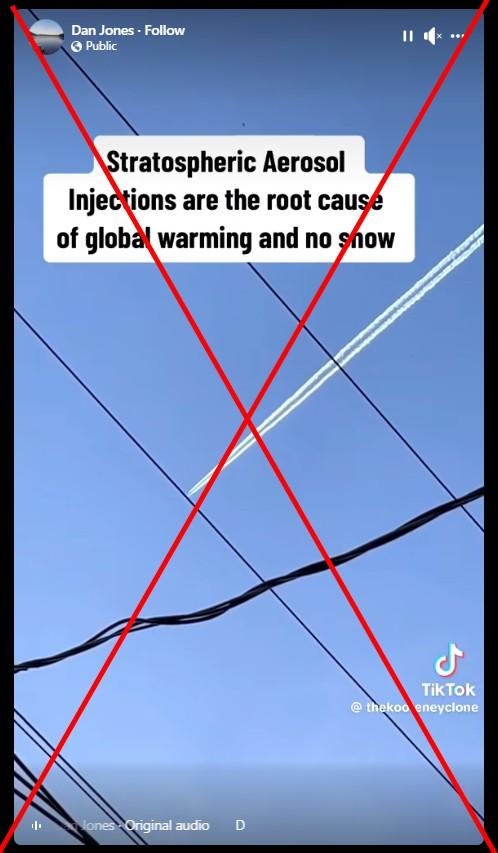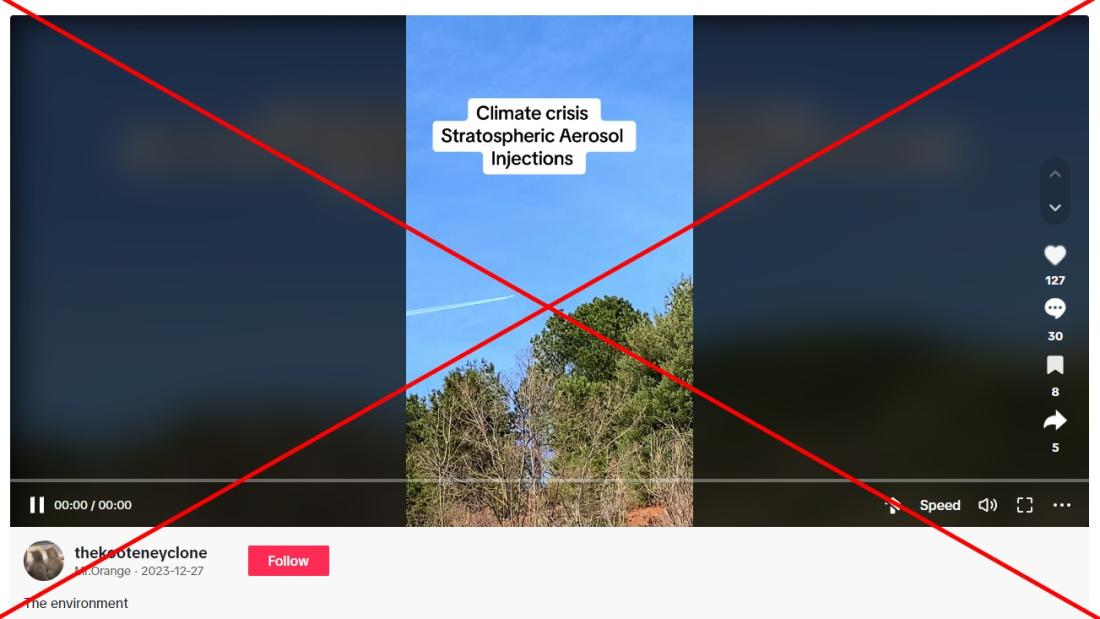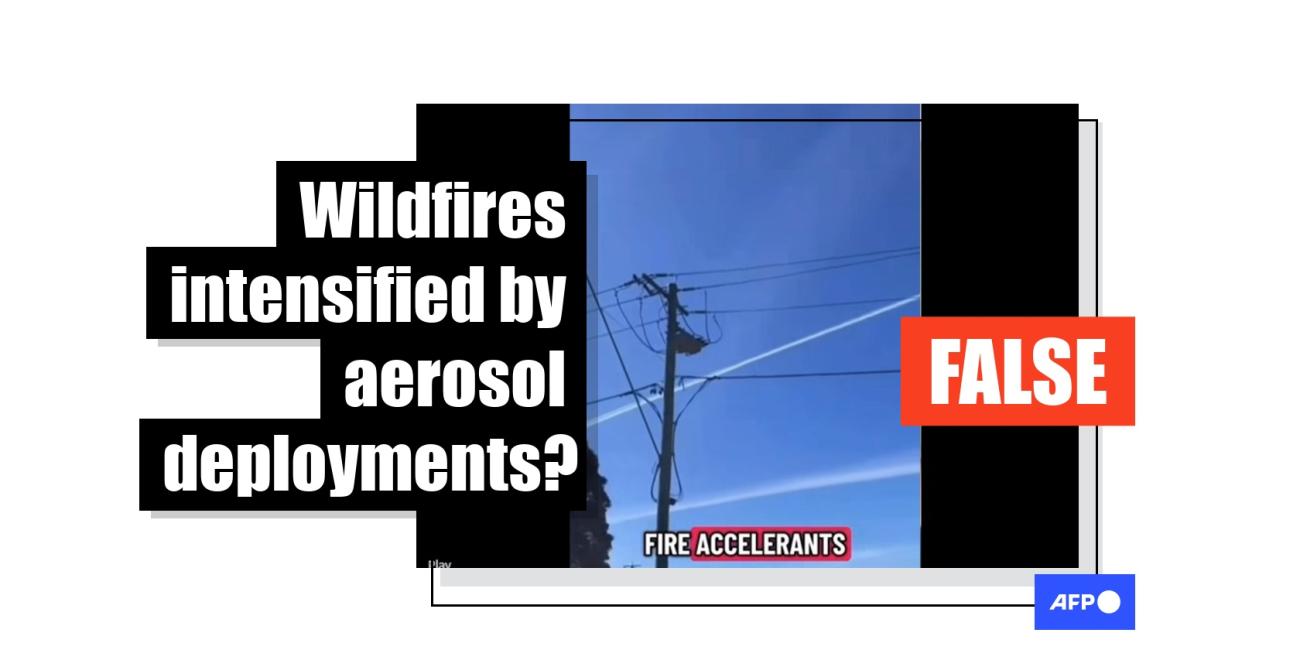
Stratospheric aerosol injections not 'root cause' of global warming
- This article is more than two years old.
- Published on January 5, 2024 at 22:59
- 3 min read
- By Gwen Roley, AFP Canada
Scientists in Canada and elsewhere are studying the use of a technique called stratospheric aerosol injections to reverse the impact of climate change, but social media posts claim this has led to global warming. This is false; the geoengineering technology that uses sulfur dioxide is being researched as a potential way to cool Earth, but experts say it has not been deployed on a large scale.
"Stratospheric Aerosol Injections are the root cause of global warming and no snow," says text over a December 28, 2023 Facebook reel with more than 13,000 views.
Local media in Canada have reported a trend of higher temperatures and lower levels of snow this winter, due in part to an El Niño weather pattern.
The Facebook video shows different cloud formations and sun rings, alleging Canada -- with guidance from the World Economic Forum, a frequent target of conspiracy theories -- is primarily to blame for climate change. The imagery and claims echo debunked conspiracy theories about "chemtrails."

The TikTok handle seen in the clip corresponds to an account that posts frequently about stratospheric aerosol injections' (SAIs) purported use in Canada.
According to the US National Oceanic and Atmospheric Administration (NOAA), SAIs are a potential climate intervention that injects sulfur dioxide into the atmosphere to mimic the natural cooling effect of volcanic eruptions, which block the sun (archived here).
That is different from the warming scenario claimed in the videos -- and the proposed technology has not yet been deployed.

Juan Moreno-Cruz, the Canada research chair for energy transitions at the University of Waterloo, said that while there is interest in SAIs and other geoengineering techniques, researchers have not deployed them on a large scale.
"There is this difference between people seeing that there is interest in research and it automatically translating that into technical deployment," Moreno-Cruz said. "There is a clear stopgap right now in this research community that does not even allow for engineering design."
He said a handful of small experiments have taken place, which are not thought to have affected the global climate. Moreno-Cruz also pointed out that the technology and funds are not available to deploy a global scale of geoengineering at present.
Controversial research
Most scientists agree that human-caused greenhouse gases are the primary reason for rising global temperatures (archived here).
In light of that fact, some researchers say solar geoengineering, which would dim the sun and reduce temperatures, could buy time for reducing emissions.
However, some climate groups warn this type of technology could be too risky and end up destabilizing the environment.
According to Moreno-Cruz, concerns usually revolve around how changing the chemical makeup of the atmosphere could disrupt precipitation cycles, which could then in turn alter monsoon cycles and snowfalls.
"So at this moment the consensus, I think, is we don't know enough about this technology to actually even think of deploying," he said. "But because it has some benefits, then we will benefit to do some research on it."
In 2023 -- the hottest year on record -- Canada experienced its worst wildfire season with more than 4.5 million acres burned, according to the Canadian Interagency Forest Fire Centre (archived here).
Environment and Climate Change Canada reports the country was the 11th highest carbon-emitting region in the world in 2020 (archived here). Canada produced 1.5 percent of global carbon emissions that year, while China and the United States were responsible for the largest proportions: 28.1 percent and 11.9 percent, respectively.
More of AFP's reporting on climate misinformation is available here.
Copyright © AFP 2017-2026. Any commercial use of this content requires a subscription. Click here to find out more.
Is there content that you would like AFP to fact-check? Get in touch.
Contact us




